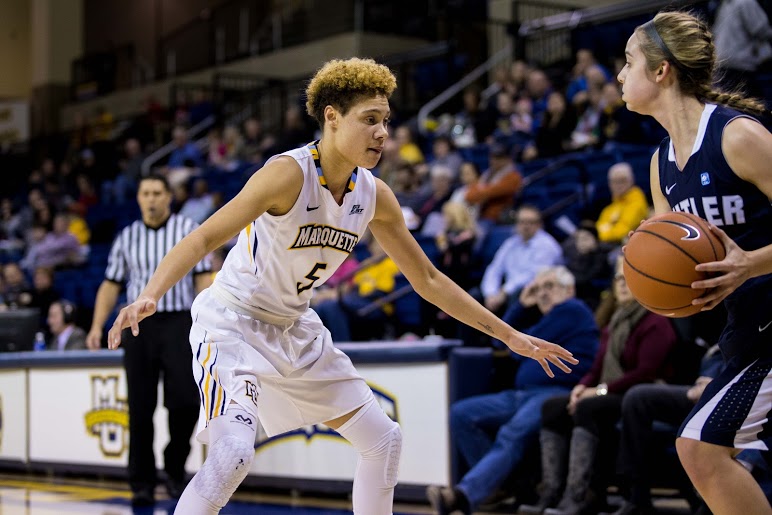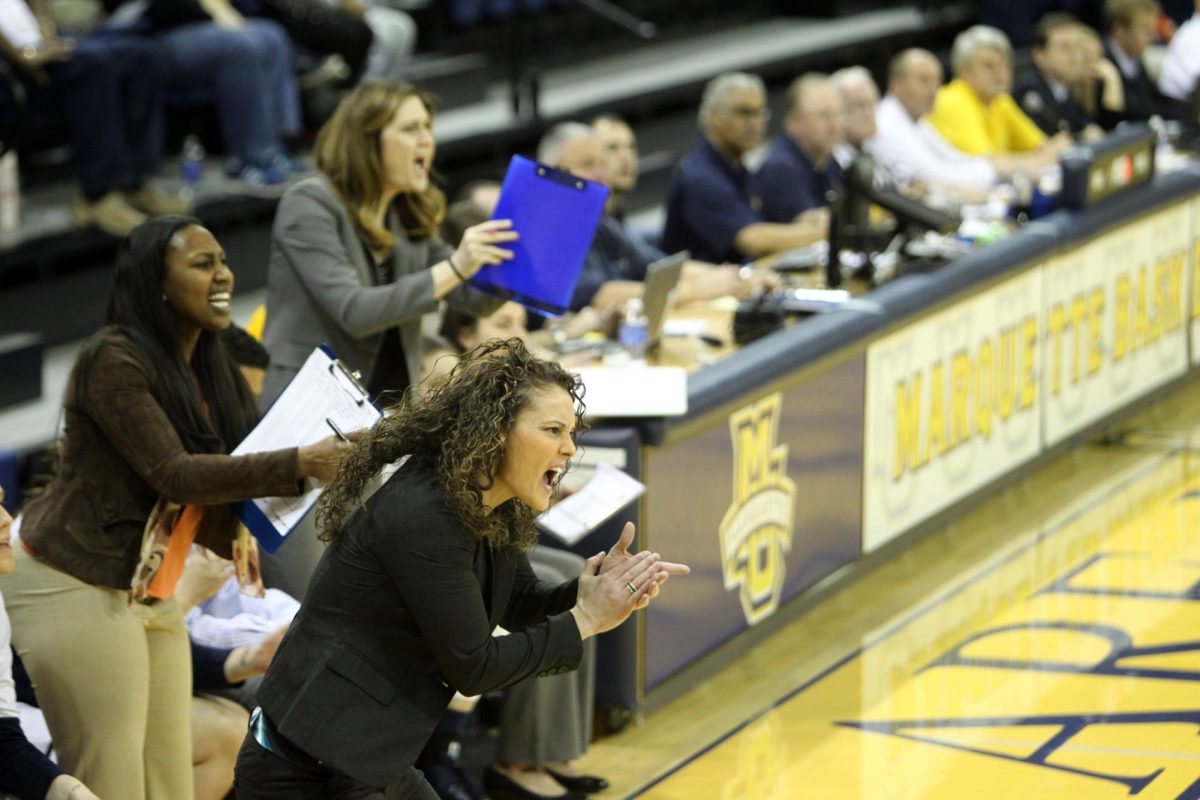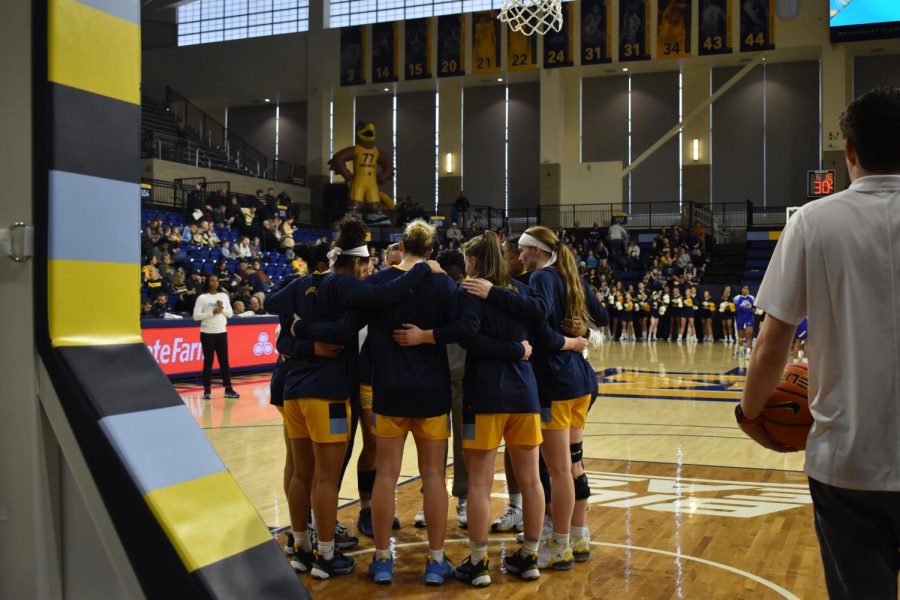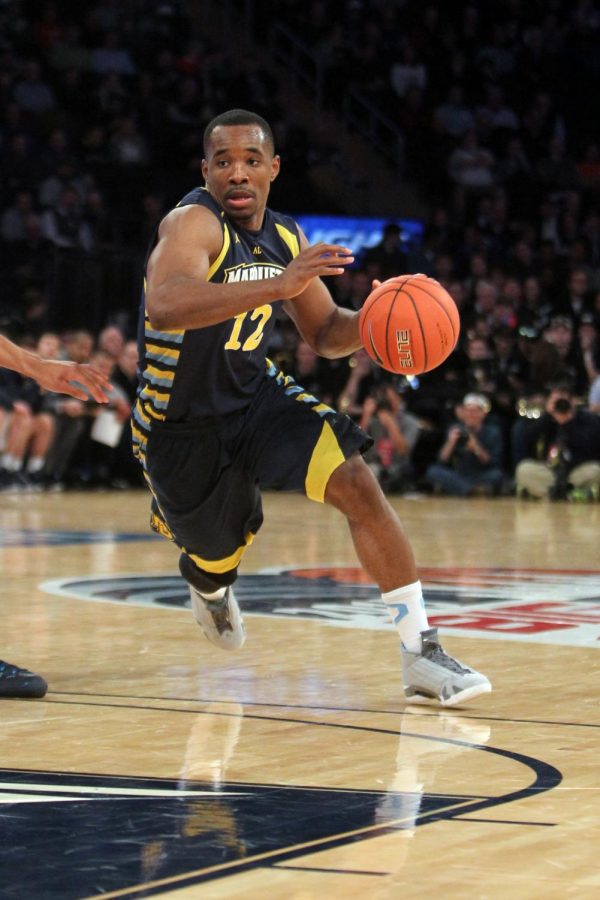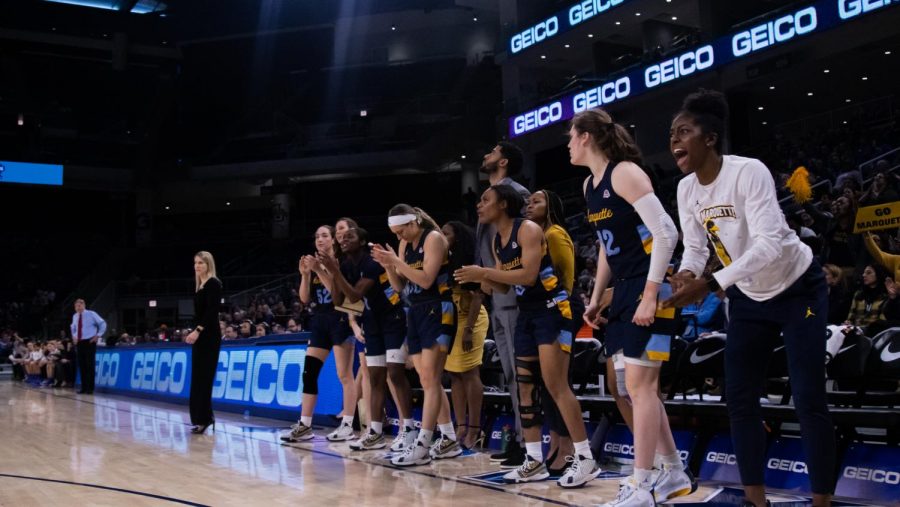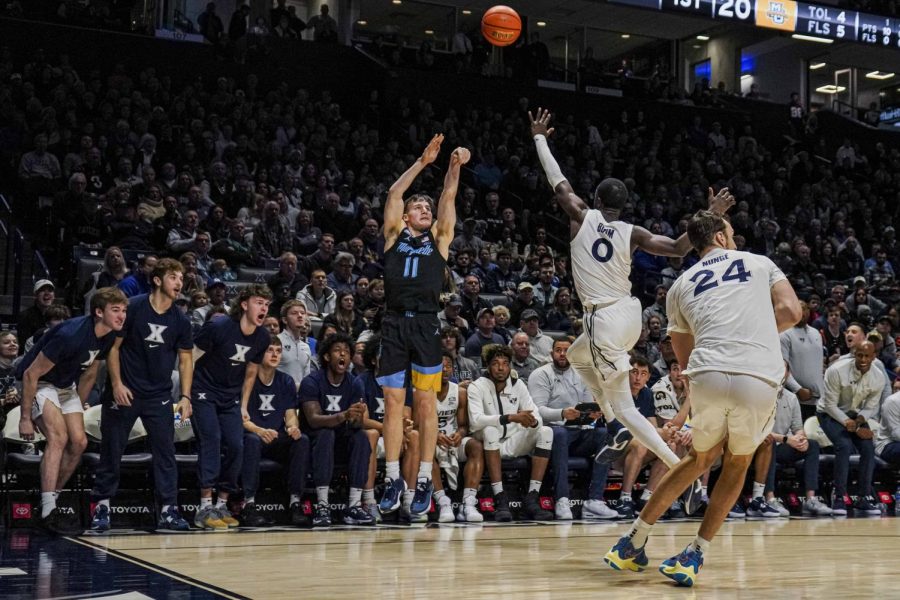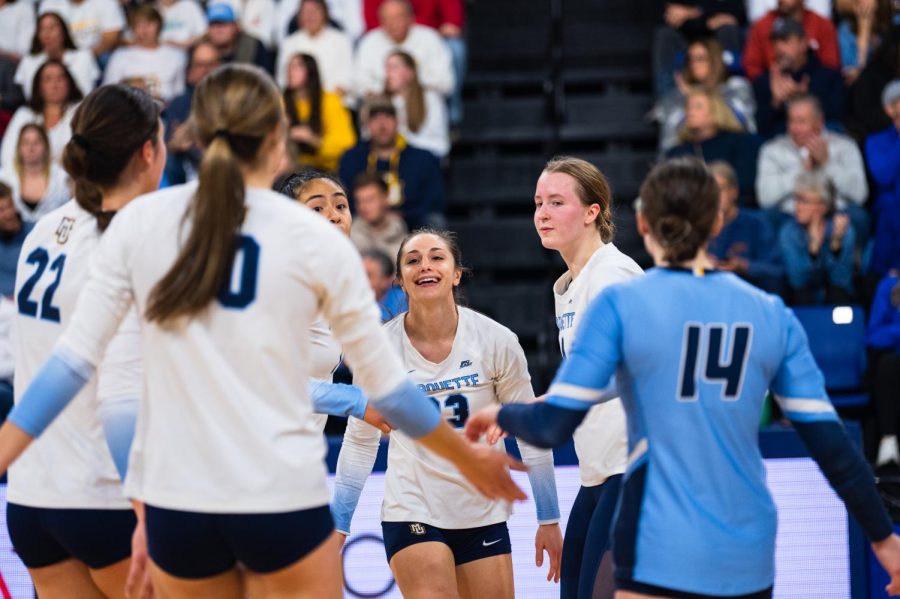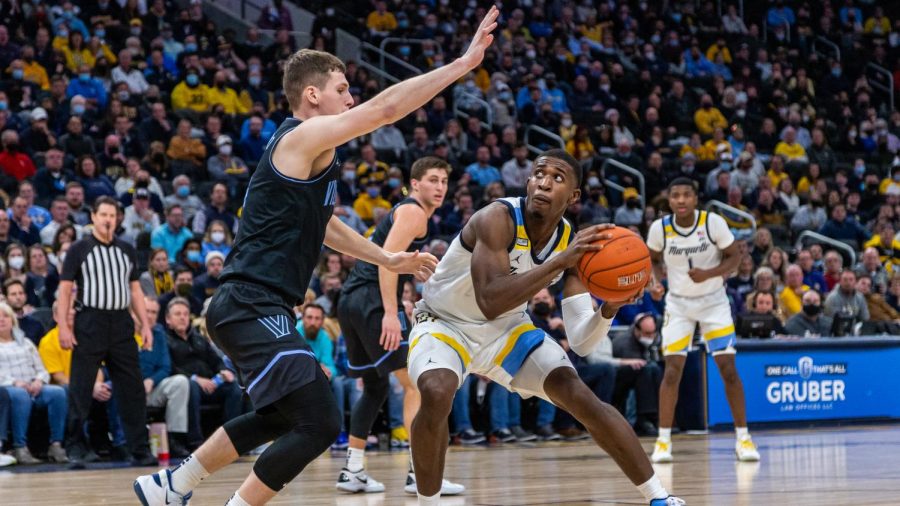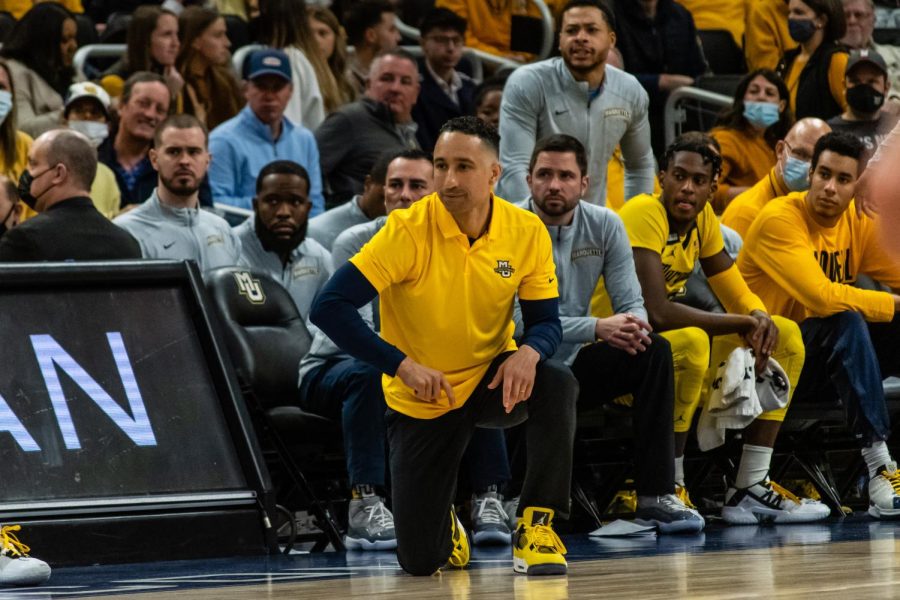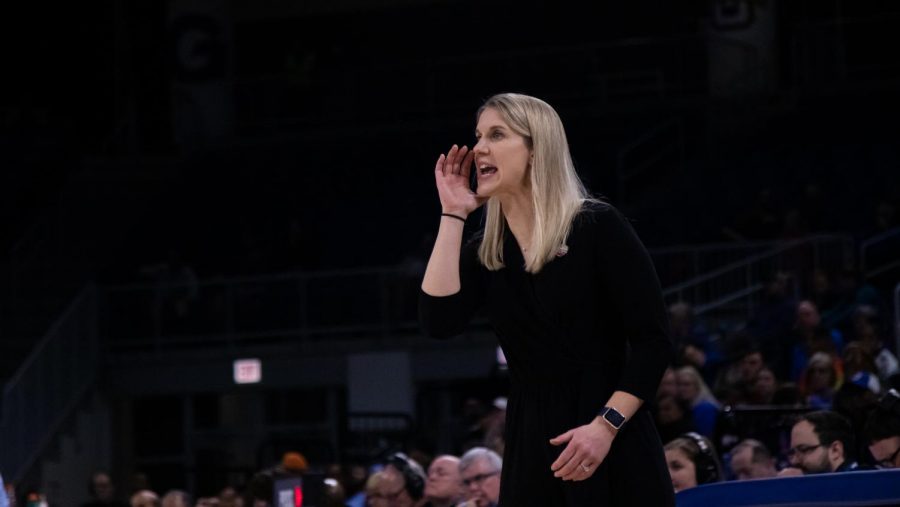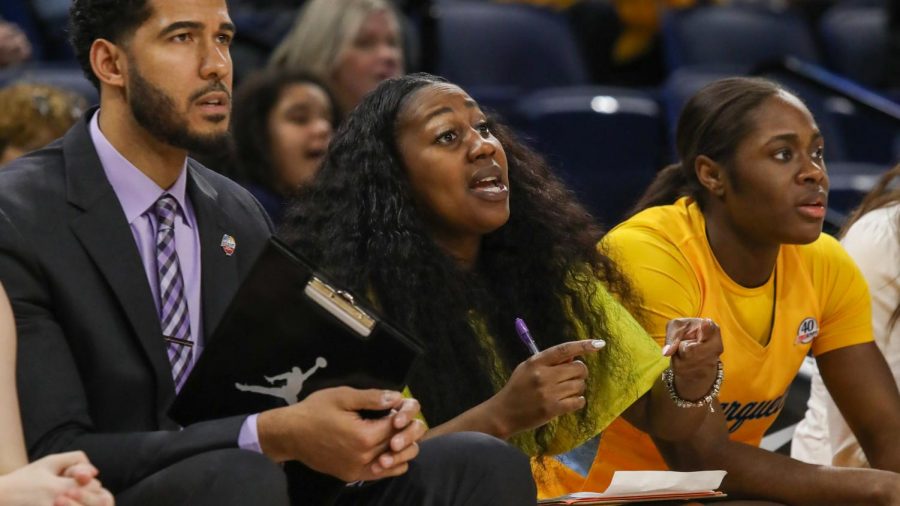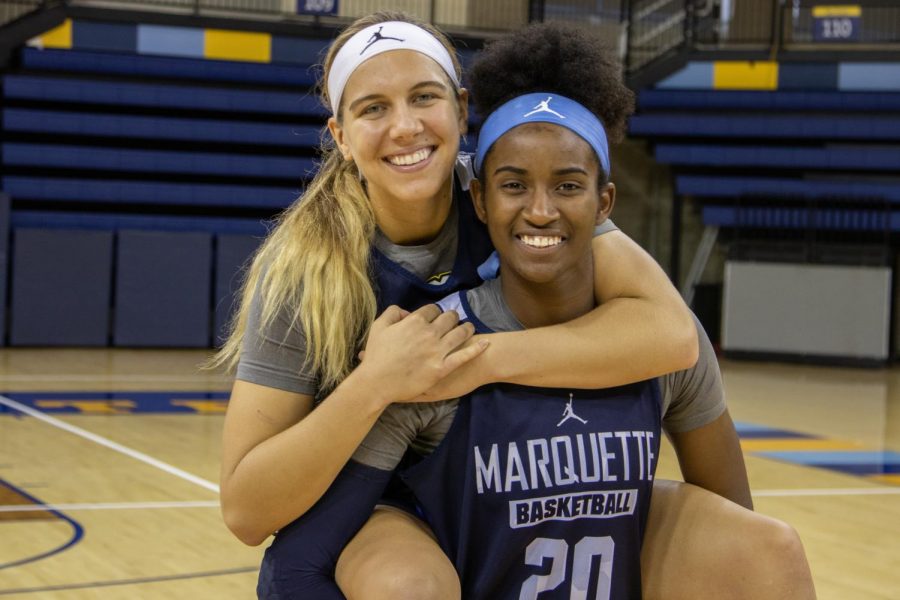Marquette guard Allazia Blockton sinks a free throw and the Providence Friars get set to inbound the ball. Then, the call comes from point guard Danielle King: “Three up! Three up!”
Instead of running back on defense, three Golden Eagles stay on Providence’s side, prowling like hyenas roughly halfway between the baseline and center court. As soon as the inbounds pass is thrown to a player on the left side of the court, Blockton and forward Erika Davenport swarm the ball handler, using their sizable wingspans to force her against the sideline.
It takes a second for the Friar ball handler to slip out of the trap and heave a pass up the court … and straight into the waiting hands of King. This starts a 25-foot fast break, ending in an easy Davenport layup and two Marquette points.
This is the ideal outcome of Marquette’s pressure scheme. Many teams play aggressive defense, but the Golden Eagles take that commitment to an extreme. They play either three-quarters court press or full-court press – tactics that most other teams reserve for end-of-game situations – after nearly every single made basket.
“Everything we do (on defense) is predicated on getting the ball back on offense,” head coach Carolyn Kieger said. “For me, coming and taking this job, I already knew that was going to be my style of play.”
The vast majority of defensive possessions do not end with a forced turnover. However, Marquette leads the BIG EAST in both steals (8.8 per game) and forced turnovers (16 per game). Both numbers are much better than last year, when the Golden Eagles only averaged 14 forced turnovers and under seven steals per game.
“They’re really good at ball-hawking and picking the ball up at 90 feet and really containing their girl one-on-one,” Kieger said about her players.
Backcourt pressure defense may appear to the average fan as a full-on attack against the player dribbling the basketball. In actuality, the press is about clogging the passing lanes between the dribbler and front court. The dribbler must be harassed with the right amount of gusto; enough to prevent a breakthrough with an open lane to the hoop, but not so much that the referee calls a foul.
“At first, it was kind of hard for us to keep our hands off and try not to make contact,” King said. “But in conference (play) the refs are a little more lenient with the contact and we’ve learned to keep our hands up and play the passing lanes.”
Running a press comes with risks. Putting two or more defenders in the backcourt leaves the Golden Eagles shorthanded on the other side. If the opposing team manages to break the press before Marquette can retreat into its half-court defense, someone on the other team is usually left uncovered with an easy shot. Kieger says she calls this the “here we go” scenario: a full-fledged pursuit of the ball from behind, forcing a mistake from the opponent.
“A lot of times, it’s not about the steal,” she said. “It’s about forcing the other team into a rushed shot or forcing them into a shot they don’t want to take.”
The strategy’s logic makes sense, but one cannot help but wonder how well it works in game situations. For all the turnovers the Golden Eagles have forced, they still give up 77.1 points per game, the eighth-worst figure in the country and barely an improvement over last year’s dismal defense. Opponents make nearly half of their two-point shots against Marquette as well.
Any criticism of Marquette’s defense should come with an asterisk, though. The active roster is only comprised of 10 players, and just seven of those players see more than a quarter of court time per game. Running such an aggressive scheme with a short rotation places a lot of conditioning demands on the players. This is a problem Kieger hopes to remedy with four new recruits next year.
“As we evolve as a program and get more fresh bodies and we don’t have as many injuries, it’s really going to evolve into something people don’t want to play against,” she said.
With every game, Marquette becomes more and more committed to the press: a frenetic, in-your-face defense with equally high risks and rewards. Whether or not it can be a viable strategy in the long term remains up for debate, but it neatly captures the mindset of this young, plucky team.
“I really love it a lot,” King said. “I’m able to run around a lot. I like to go fast and get in the passing lanes, so I’ve always liked the press defense.”

